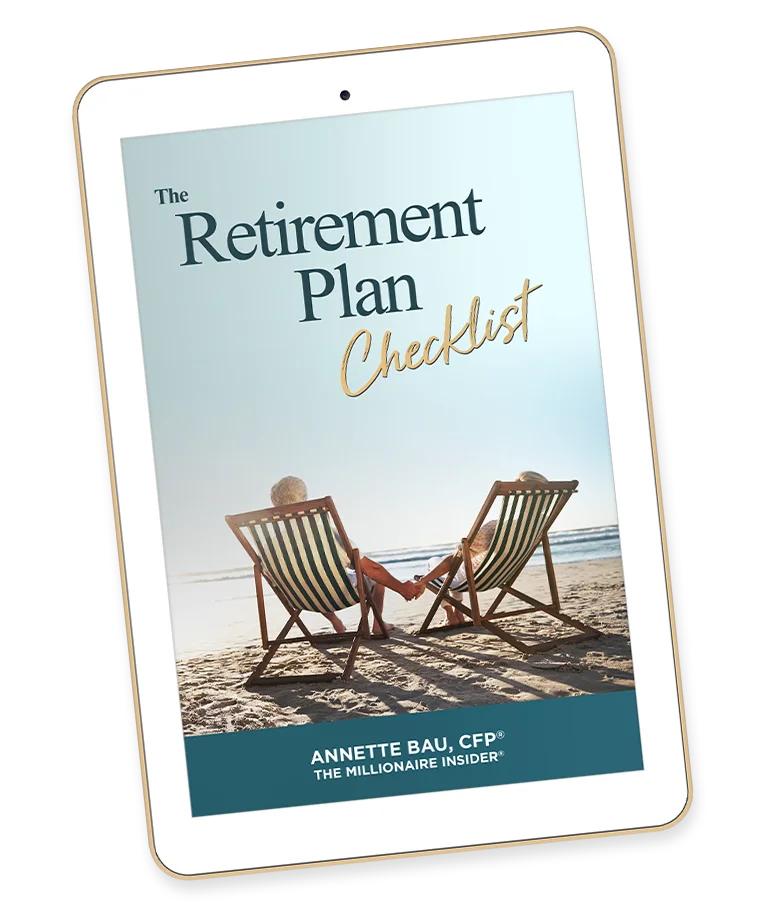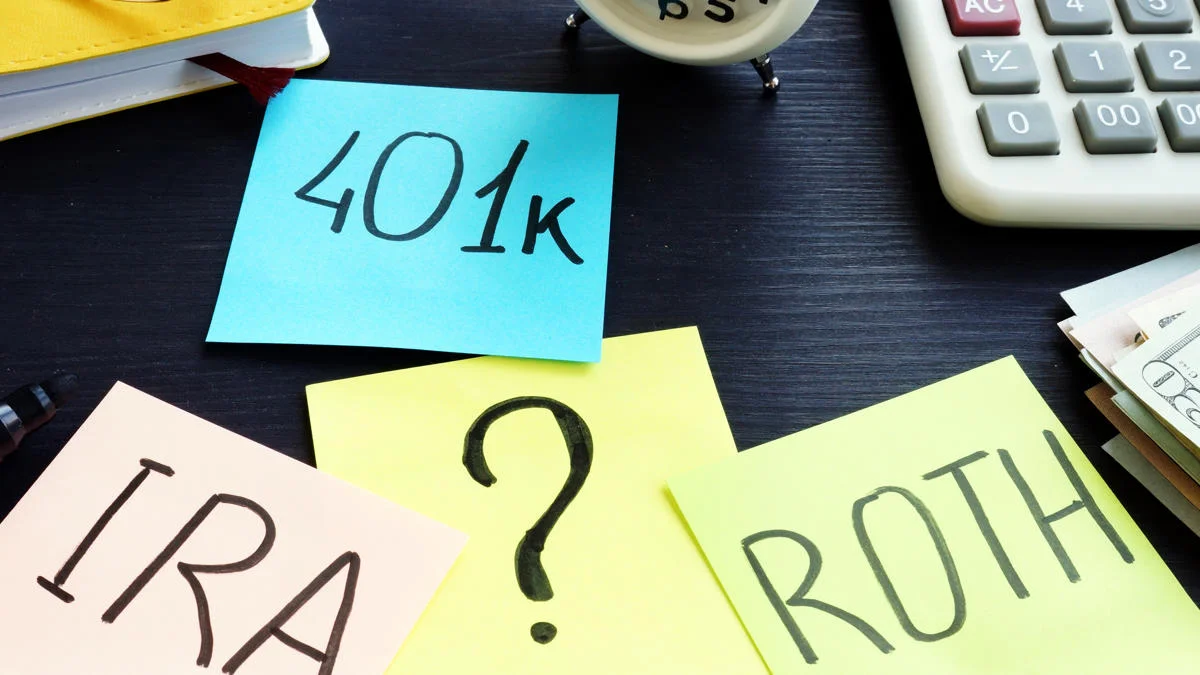One of the most important retirement decisions is determining how much money you need.
Have you ever asked yourself questions like
- Do I want to retire only to find out I may run out of money?
- Or do I want to have to get a full or part-time job after I retire?
- What happens if I am not able to work because of my health or a disability?
Most people have a variety of questions about their retirement.
Some of the most common questions include:
- Is $1 million enough money to retire?
- How do I ensure I won’t run out of money?
- What happens with our Social Security benefit when one partner dies?
- How much money is enough to last my lifetime?
- How do I reduce taxes and plan for inflation?
If you want the answer to these questions, tune into today’s episode.
Summary: Wealth Inside and Out® Podcast – “How Much Money Do I Need to Retire?”
Overview of what you will learn:
>> (3:04) Is $1 million enough money to retire comfortably?
>> (4:20) How taxes impact your retirement
>> (11:30) The first critical step when considering retirement
>> (12:31) What investments have returned based on historical numbers
Hi, my name is Annette Bau (bah oo).
I’m a Certified Financial Planner™ and founder of The Millionaire Insider®.
This is the Wealth Inside and Out® Podcast.
Your Next Step Financial Assessment
If you need help on the best next step to secure your financial future, click here.
Free Retirement Plan Checklist Resource
You can go to https://themillionaireinsider.com/retirement-plan-checklist-registration/ to access this resource.  You’re going to love it. It provides an overview of the actions you need to take to avoid the biggest retirement planning mistakes people make. It will help you stop worrying about running out of money and ensure you can live and retire on your terms.
You’re going to love it. It provides an overview of the actions you need to take to avoid the biggest retirement planning mistakes people make. It will help you stop worrying about running out of money and ensure you can live and retire on your terms.
We share insights in this free Retirement Plan Checklist resource that many people don’t even consider. So again, you can go to Retirement Planning Checklist.
One of the most common concerns women have is becoming a bag lady.
The Bag Lady Syndrome is a fear you will run out of money and cannot afford essentials.
Examples include expenses for housing, utilities, food, medical care, etc.
This guide is a great first step to help you create a plan so you can stop worrying. Click here to access the guide.
Disclosure
All materials and intellectual property are copyrighted by MillionaireSeries.com®.
This information is for educational purposes only. It is not intended to replace any advisor or specialist or provide investment, financial, tax, retirement, planning, or healthcare advice.
By accessing this content, you agree to hold MillionaireSeries.com® and its affiliates harmless for results achieved or not achieved.
The Importance of Retirement Planning

Retirement planning is a critical piece of your financial plan.
While many people understand this, many are uncertain about how much money they need to retire comfortably.
The question, “How much money do I need to retire?” often raises more questions than answers.
Considerations include:
- Your lifestyle preferences
- Expected expenses
- Your and your partners health
- Retirement age (will you retire in 5, 10, 20, or 30 years), or your different savings plans
- Life expectancy (how long you expect to live and years of retirement). The numbers will be dramatically different if you have five vs. 25 years to fund your retirement.
- Rate of return, inflation rates, and the amount you will save for retirement
- Planned income at retirement including retirement savings accounts and balances
Today, we will discuss key takeaways and considerations for retiring without depleting your nest egg (the money you have saved).
Review Your Current Financial Situation
Evaluating your current financial status is essential before determining how much money you need for retirement.
Take an inventory of:
- Your assets, including savings and investments
- Any retirement income such as pensions. 401ks, IRAs, or Social Security benefits
- The savings rates on your retirement and personal investments
- Any debt you currently have
This includes determining if you will wait for your full Social Security benefits.
Understanding your current financial position provides a foundation for planning your retirement goals.
Evaluate your Spending Habits
First, you need to determine your annual pre-retirement income and expenses.
Estimating your income and expenses is crucial for determining how much money you’ll need.
Many people create a plan assuming they will spend less money in retirement. That often is not the case for successful entrepreneurs who want to do the things they put off while accumulating wealth, i.e. spend more money doing what they enjoy.
Review your current spending habits and consider how they might change in retirement.
While some expenses (such as commuting or work-related expenses) may decrease, others won’t. For example, healthcare often increases, as does traveling and entertainment.
Consider Your Retirement Lifestyle
Your desired retirement lifestyle significantly impacts how much money you’ll need.
Do you plan to
- Travel frequently
- Pursue expensive hobbies
- Downsize to a simpler lifestyle?
Every choice has financial implications.
Factor in Longevity and Healthcare Costs

Retirees need to plan for a longer life expectancy.
By considering longevity risk, ensure your retirement savings can support you throughout your lifetime.
Don’t forget to account for inflation, as the cost of living will likely rise over time. For example, if you have to fund a 25-year retirement, inflation will be a factor you must consider.
In 35+ years, I have never had anyone share they wish they had less money for retirement.
Healthcare costs tend to rise with age. For this reason, it is crucial to budget for medical expenses. Examples include:
- Insurance premiums
- Deductibles
- Long-term care
Funding Long-term Care
A critical and often overlooked expense is long-term care expenses.
While you may be able to self-insure, purchasing a long-term care insurance policy may be a better option.
Considerations include:
- The amount of coverage
- The type of policy (traditional or hybrid)
- Your ability to pay for it now and in the future. Many policies become more expensive as you get older.
Please be sure to consult with a qualified specialist before purchasing a policy.
Account for Sources of Retirement Income

In addition to personal savings, identify potential sources of retirement income.
Examples include:
- Pensions, 401ks, or IRAs
- Social Security benefits
- Dividends and interest
- Rental income
You need to determine how much income you’ll receive from these sources. Your total income will help you determine how much more money you need to save and when you can afford to retire.
Use a Retirement Calculator
Many people successfully use a retirement calculator to determine whether and when they can retire. These calculators can provide valuable information and help you track your retirement goals.
Since these are often like robo advisors, they can’t consider your unique situation. If that is the case, consider hiring a retirement planning professional.
Seek Professional Advice
Consulting with the right financial advisor can be priceless.
For example, they can:
- Share insight you have not considered or have overlooked
- Create a plan to factor in taxes that you may not have considered
- Determine the impact of inflation
Ensure your plan meets your and your partner’s goals (if applicable)
Be Flexible and Adjust Your Plan as Needed
Financial planning is an ongoing process. One of the most important factors is to ensure you adjust your plan as your situation changes.
Many factors will impact your plan. Examples include:
- Life circumstances
- Economic conditions
- Personal goals
- Tax law changes
Stay flexible and revisit your retirement strategy annually. This will help ensure that your plan will serve you for your entire life.
There is nothing fun about unplanned surprises. This is especially true when you are living on a fixed income.
Recap – “How Much Money Do I Need to Retire?”
Ultimately, the amount of money you need to retire comfortably is highly individualized and impacted by numerous factors.
Important considerations include
- Assessing your financial situation
- Estimating retirement expenses
- Considering your desired lifestyle
- Factoring in longevity and healthcare costs
- Utilizing available resources
- Getting professional guidance
These factors will help you create an effective retirement plan and ensure you won’t spend your golden years worrying about running out of money.
Start planning early and stay proactive to secure a financially stable and fulfilling retirement.
Click here to follow and leave a review.
Free Resource: Your Next Best Financial Step

Congratulations on taking another step to create a financially free life you love.
Are you unsure about your financial future or that it’s in order?
Or are you ready to stop worrying about money?
Do you fear becoming a bag lady and ending up broke in retirement?
If you are ready to know your financial house is in order so you have a secure financial future, please go to https://themillionaireinsider.com/nsf.
The number of women who were not broke or poor while working or married is staggering.
If you need support creating a plan to secure your retirement, click here:
Click here to get your free financial checkup:
Follow and Subscribe
If you love this content, please open the Apple Podcast on your iPhone. Scroll down to the bottom, click follow, leave us a 5-star review, and share a comment. We really appreciate it.
Thank you so much for joining me for
“How Much Money Do I Need to Retire?”
All international copyrights are reserved.




